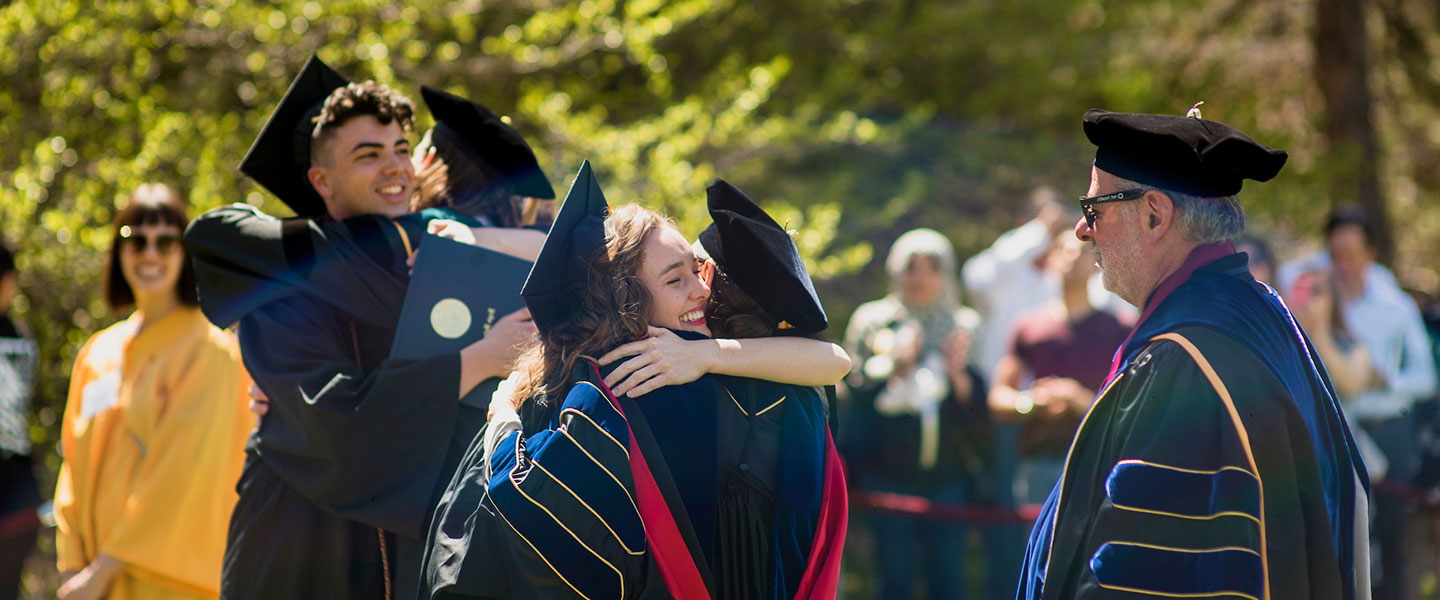
PH 408: Analytical Mechanics and Special Relativity
Introduces calculus of variations and the Lagrangian and Hamiltonian formulations.
Bachelor of Science
Feed your curiosity about how the world works.
Physics and astronomy address fundamental questions about the nature of the universe. How do conservation principles guide physical interactions? What is the structure of matter, space, energy, and time? Physicists and astronomers develop and test models that describe the behavior of matter and energy at scales ranging from the subatomic to the galactic.
The Bachelor of Science in Physics degree provides a traditional introduction to the fundamental principles of the natural world, including mechanics, electricity and magnetism, quantum phenomena and statistical thermodynamics. Students gain experience in mathematical problem solving and experimental laboratory methods. Students develop hands-on experimental and computational abilities while sharpening their mathematical reasoning skills.

Tara Davis, Director of Admissions
Course Format
On-campus courses
Academic Term
16-week semesters
Tuition for the 26-27 Academic Year
$47,490

Introduces calculus of variations and the Lagrangian and Hamiltonian formulations.

Studies Coulomb’s law through the electromagnetic field of moving charge.

Studies chemical kinetics, electrochemistry, kinetic molecular theory, photochemistry, atomic and molecular structure.
Get all the details on our B.S. Physics program, including course requirements and application materials.
Use wave optics, chemical kinetics, gas dynamics and other physical principles to predict the performance of lasers and resonators.
Study the universe, collecting data from global satellites and spacecraft and operating radio and optical telescopes.
Medical physicists work in areas such as radiology, radiation oncology and nuclear medicine to test and improve medical technology and equipment.

Expand your study and career opportunities through the Dual Degree Engineering program. This program allows our students to combine a Jesuit liberal arts education with courses in engineering, positioning them for successful careers as principled professionals in the Engineering field.
To apply to the B.S. Physics program, you will need:
The first step in the application process is to contact an admissions counselor, who can help you through the entire application process, evaluate your prior learning credit (AP, IB, etc.) and provide information regarding financial aid and tuition assistance.
Full-time tuition for the 2026-2027 academic year: $47,490/year (fall and spring semesters)
Part-time tuition for the 2026-2027 academic year (less than 12 credit hours per semester): $1,583/credit hour
Tuition is one part of the overall cost of attendance, which includes all expenses students may have, including basic living costs. For more information about tuition, fees and your estimated cost of attendance, visit our Tuition and Fees for Traditional Undergraduates page. Tuition and fees are subject to change.
Curious about financial aid options? Regis offers a variety of scholarships, grants and other programs to help you pay for school. Check out our Net Price Calculator to get a better look at what your financial aid package may include.

Regis University follows in the heritage of the Jesuit Catholic order, prioritizing the development of the whole person while preparing you for the modern world. Learn more about our tradition of excellence and the benefits of a Jesuit education.
The Bachelor of Science in Physics is offered by the Astronomy, Mathematics and Physics Department within Regis College.